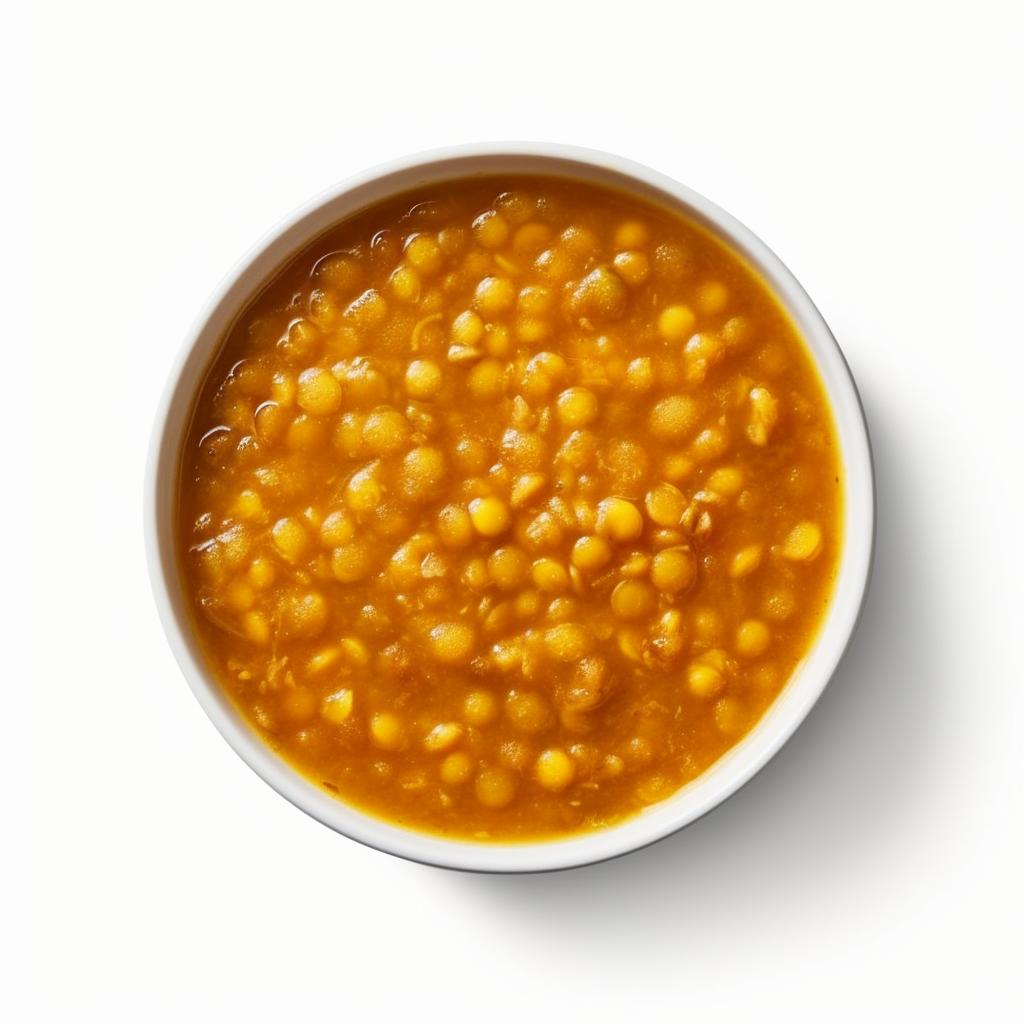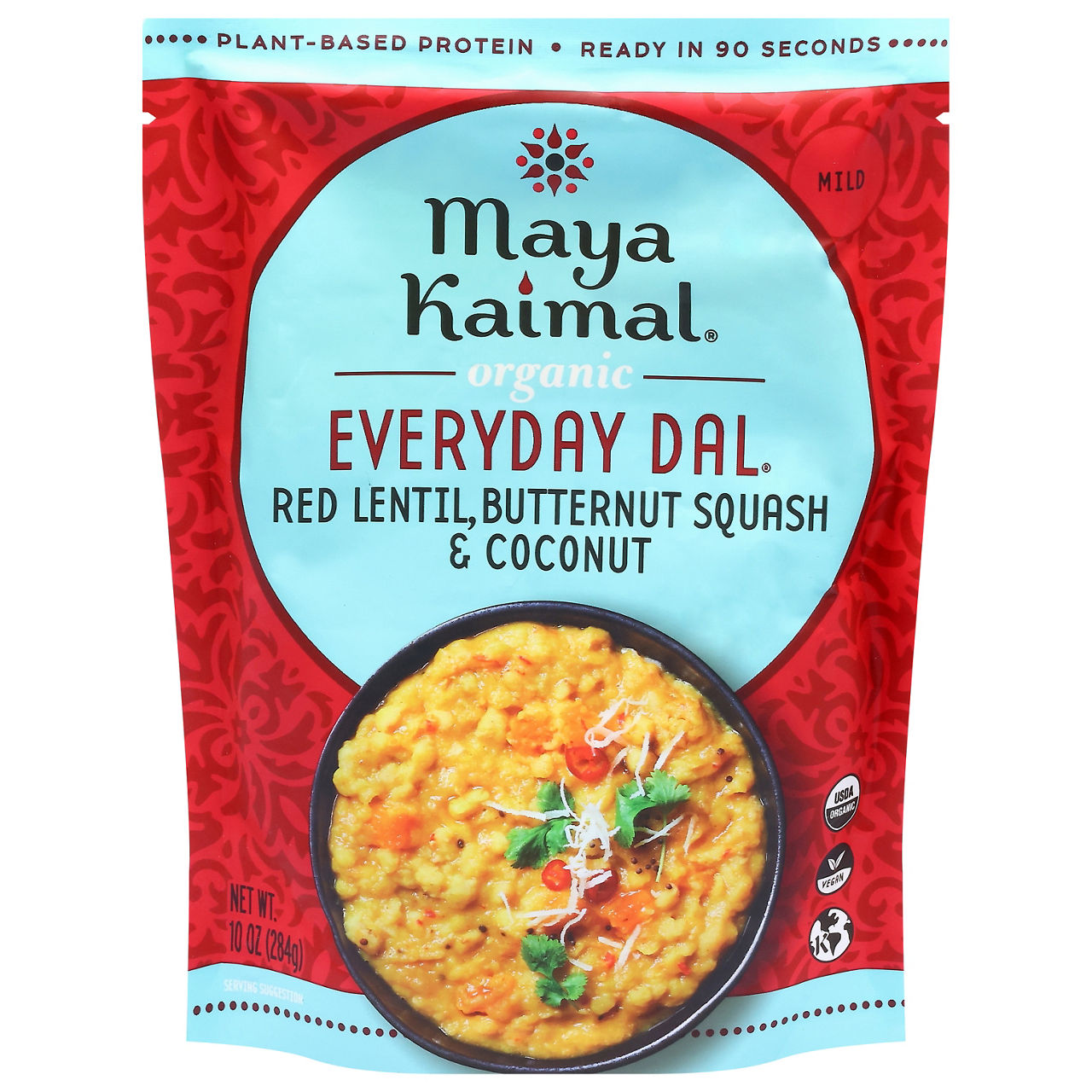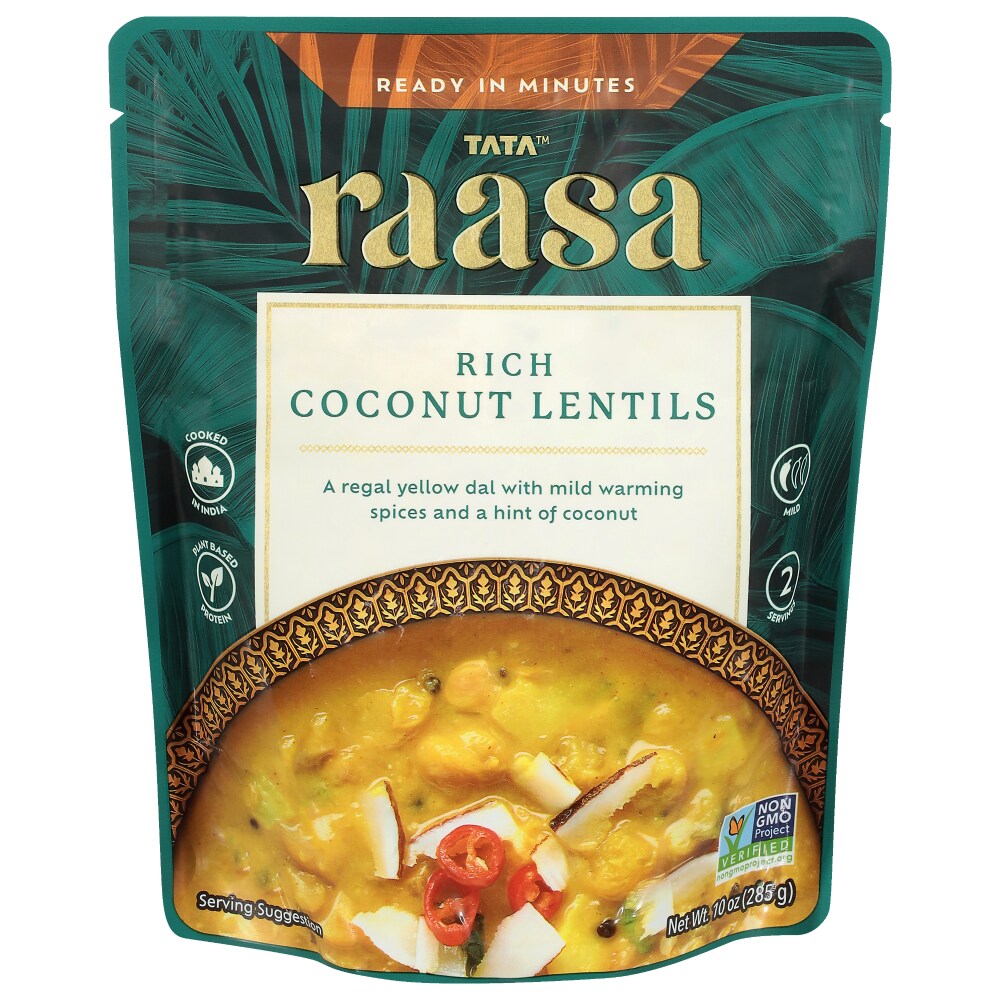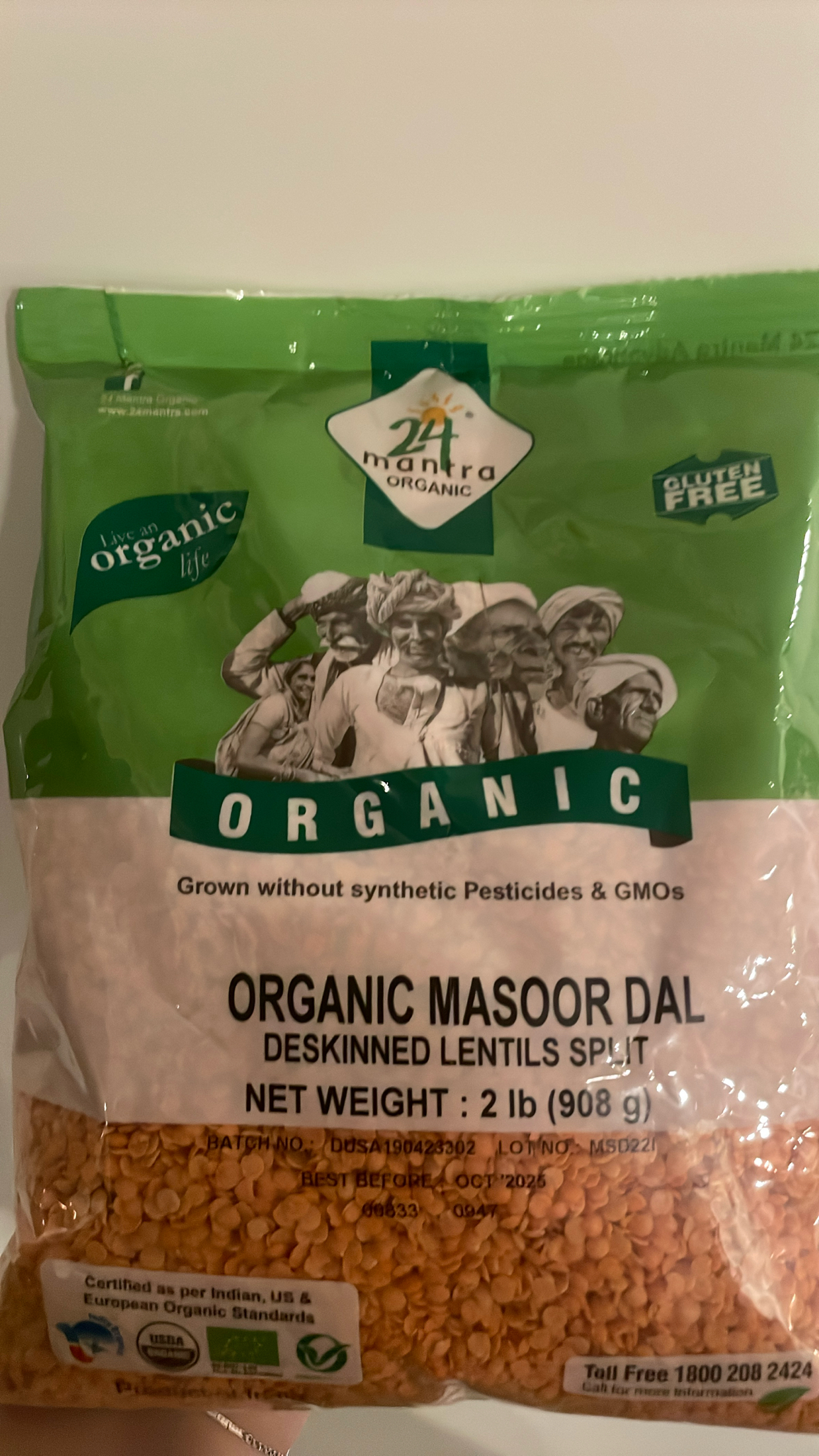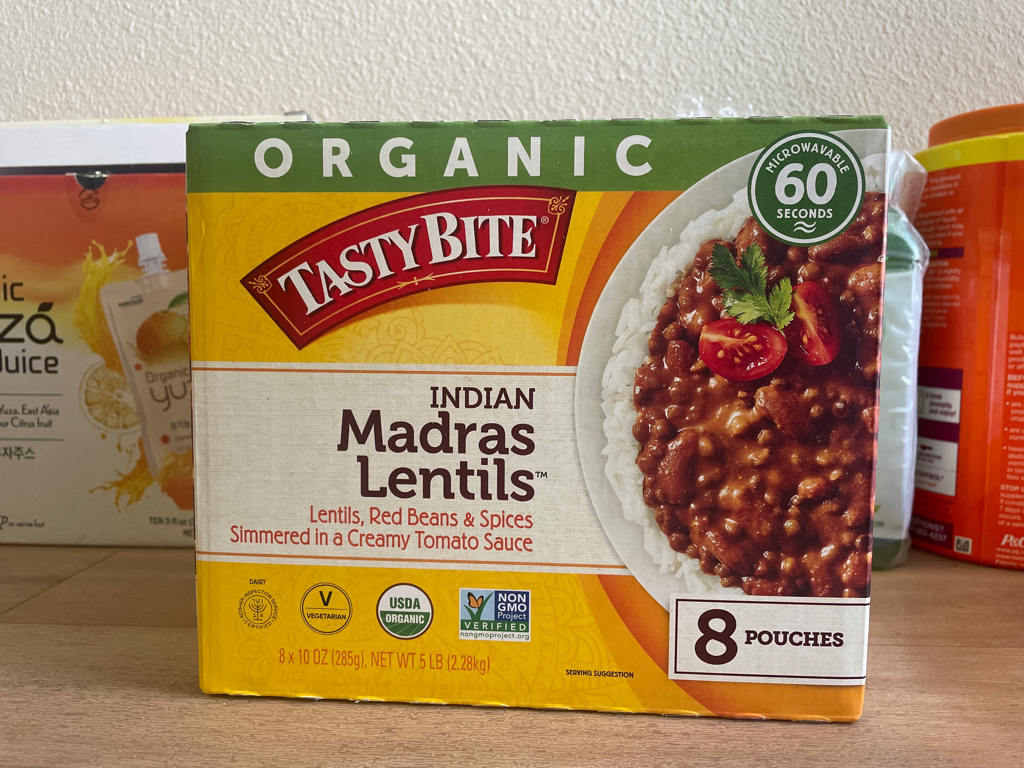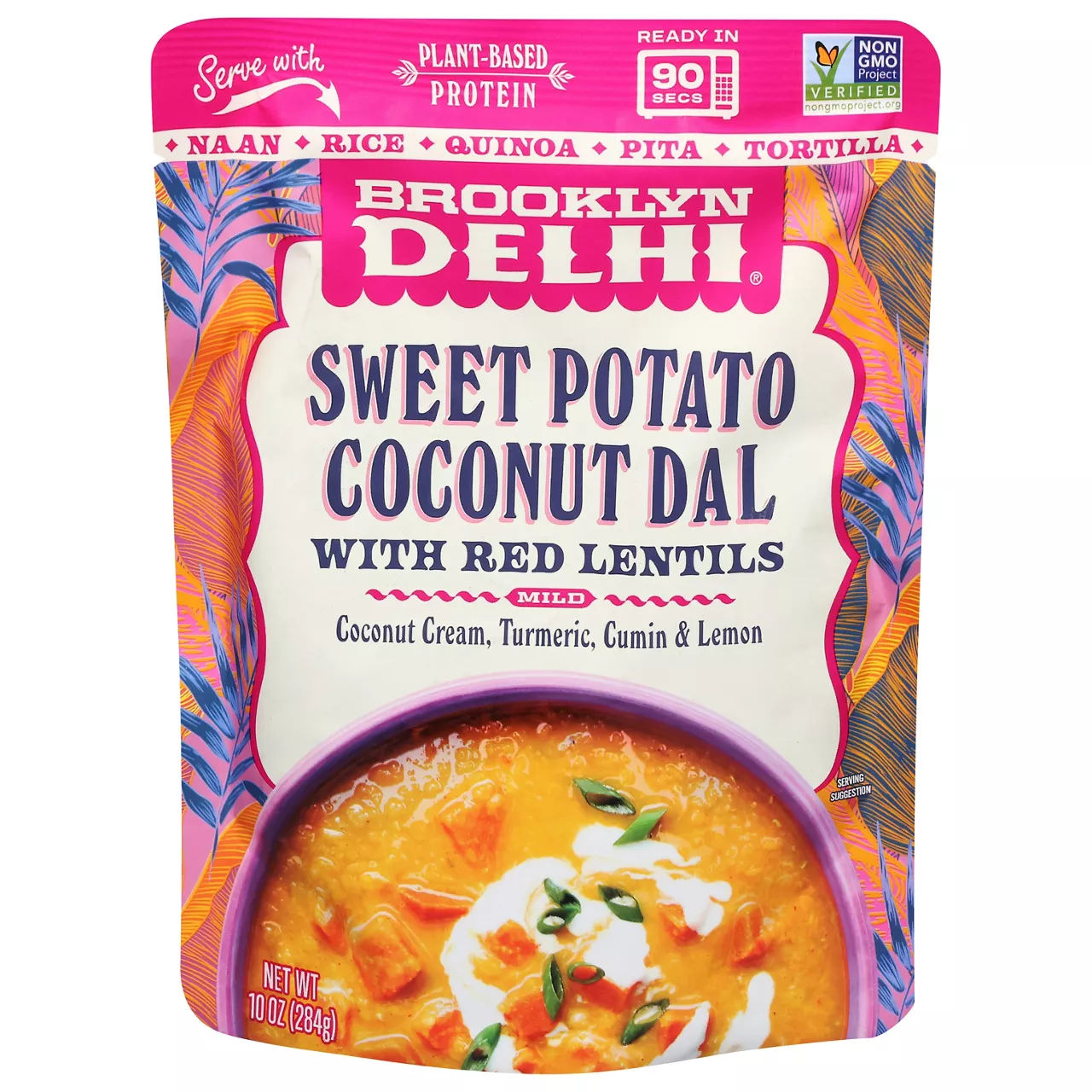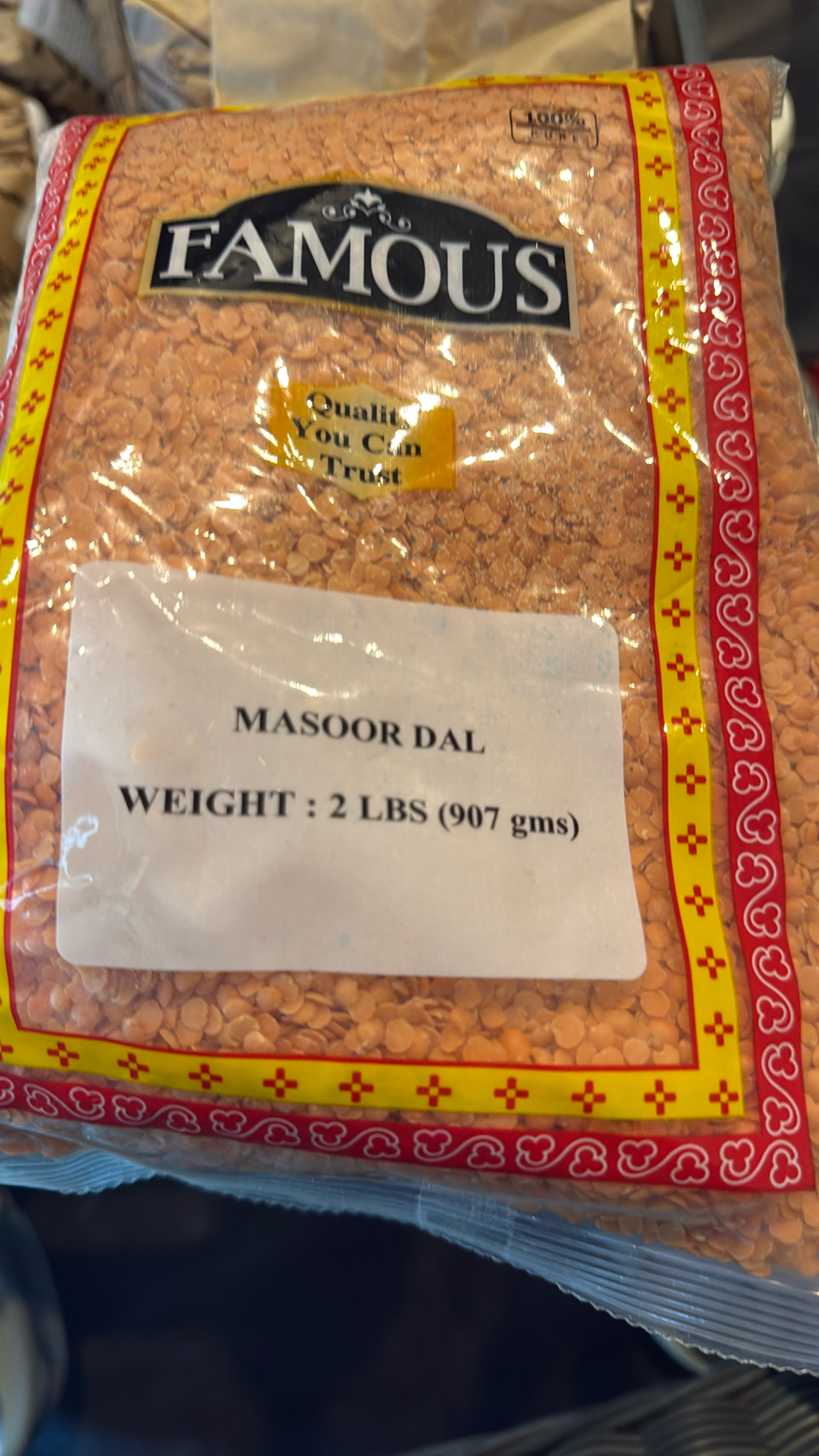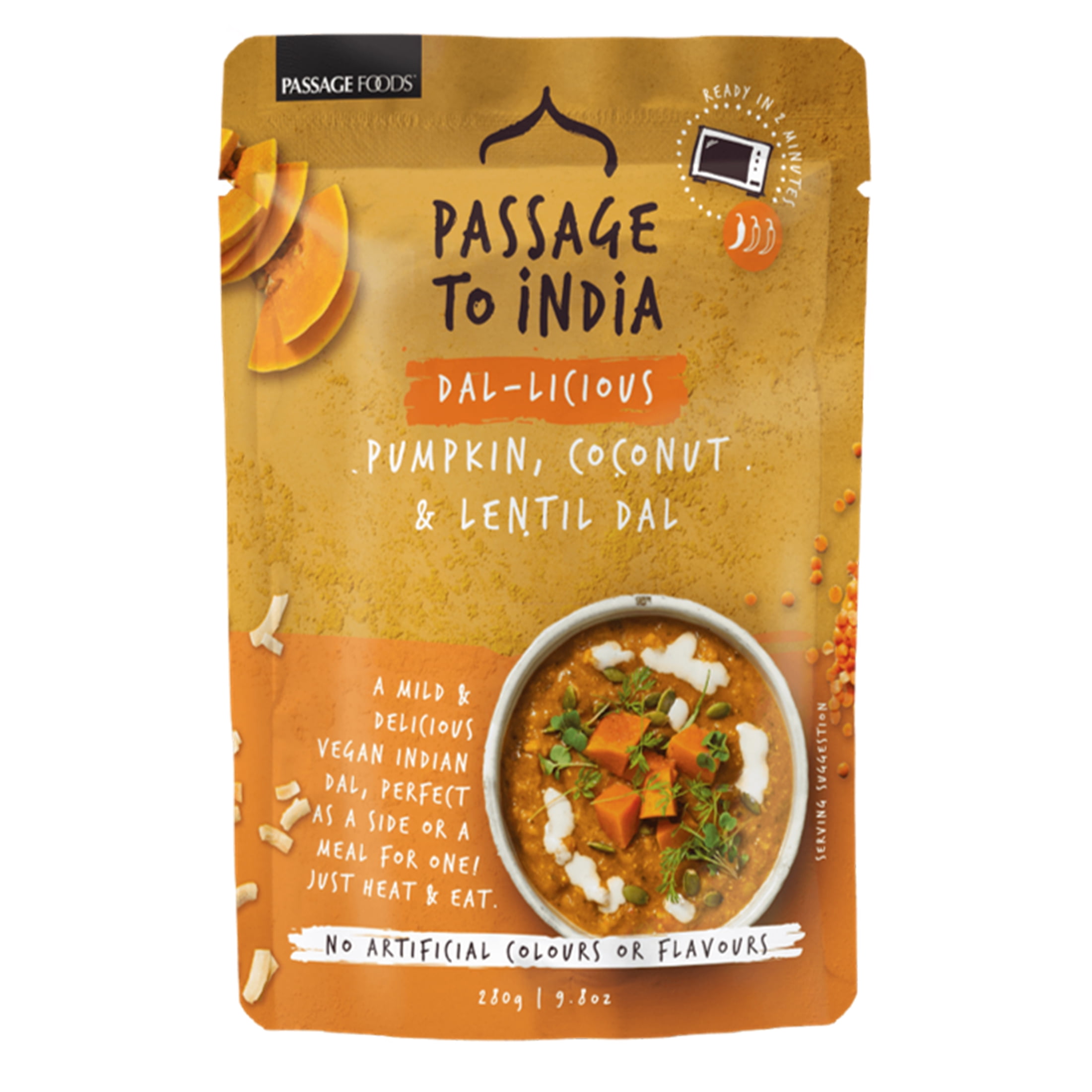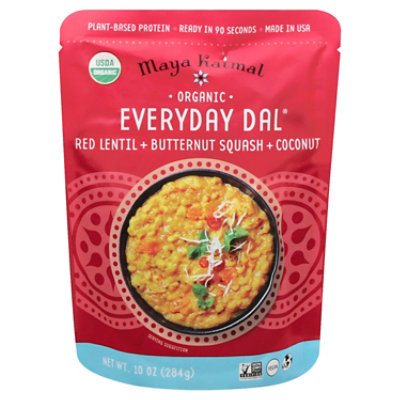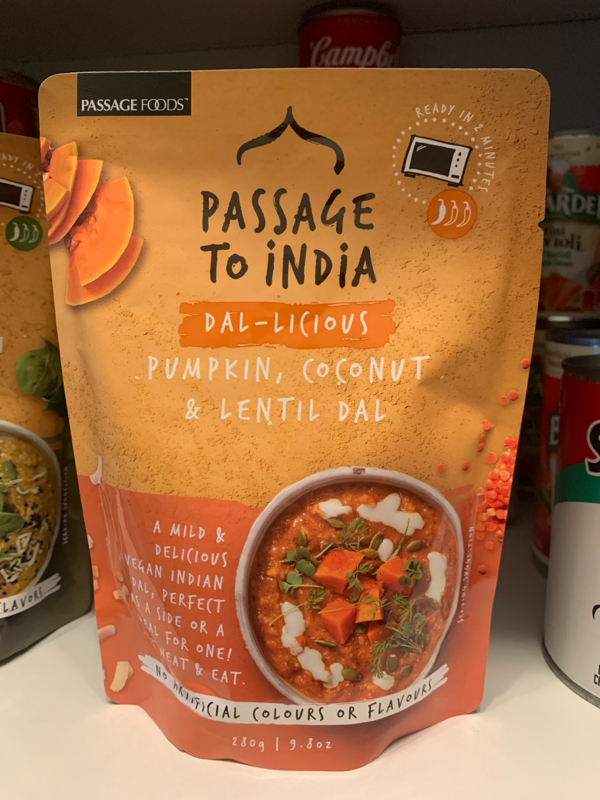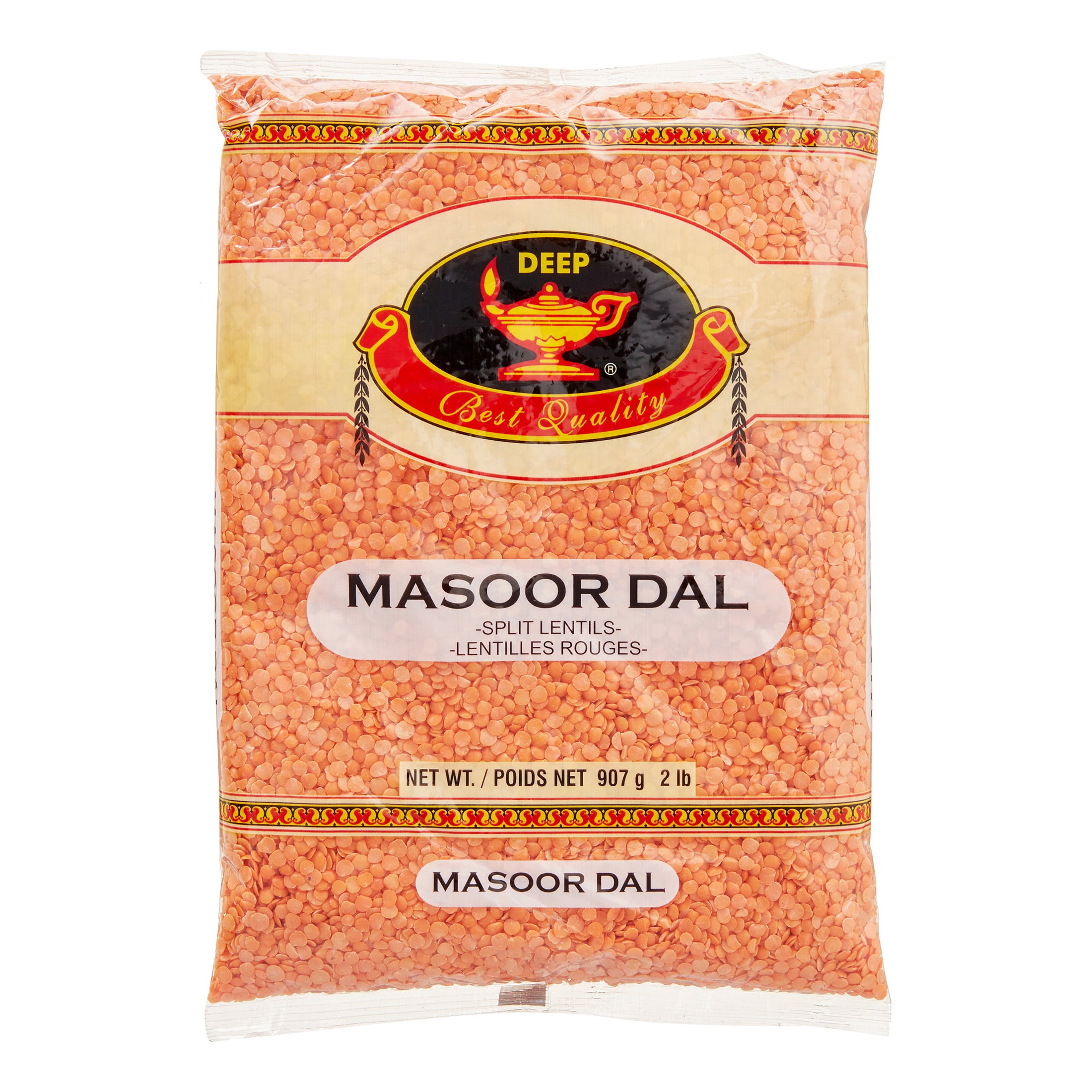Masoor Dal Dish
Masoor Dal is a popular lentil variant, a staple ingredient in Indian and South Asian cuisine. It's a dried legume that is split or whole, often orange or brown. Providing a hearty, nutritious base for many dishes, it is revered for its high protein content.
With a light, bitter taste, Masoor Dal can often be found cooked down into a soup-like consistency paired with a variety of aromatic spices. It cooks quickly and easily, making it perfect for those looking to try their hand at authentic, homemade Indian dishes.
66%
CARBS
12%
FAT
22%
PROTEIN
23 Masoor Dal Dish Products
Maya Kaimal Organic Vegan Everyday Dal Red Lentils with Butternut Squash and Coconut
Tata Raasa Rich Coconut Lentils
Organic Masoor Dal
Org Madras Lentil 8
Brooklyn Delhi Sweet Potato Coconut Dal with Red Lentils
Masoor Dal
Passage Foods Passage to India Dal-Licious Pumpkin, Coconut & Lentil Dal
Maya Kaimal Everyday Dal, Organic, Red Lentil, Butternut Squash & Coconut, Mild
Dal-Licious Pumpkin, Coconut & Lentil Dal
Deep Masoor Dal
1 Recipe for Masoor Dal Dish
Masoor Dal Dish FAQ
When cooking Masoor Dal, there are some common areas where people can slip up. For example, it's a misconception that the longer you soak the dal, the better. In reality, over-soaking can lead to a mushy consistency. Usually, an hour or two is enough.
One of the trickiest parts of cooking Masoor Dal is getting the texture right. The desired consistency can vary based on personal preference and the specific dish, with some recipes requiring a thicker, stew-like consistency, while others may call for a thinner, soup-like texture.
Additionally, correctly tempering the spices (known as 'tadka') makes a huge difference in the final flavor. Overheating can burn the spices and give the Dal a bitter taste. The art of tempering lies in cooking the spices just enough to release their flavors without burning them.
Little-known tips or tricks for cooking Masoor Dal include adding a dash of asafoetida to the tempering for better digestion, using a pressure cooker to save time, and adding a spoonful of ghee or butter at the end to enhance the flavor.
Should I soak the Masoor Dal before cooking?
How much water should I add while cooking Masoor Dal?
How do I temper the spices for Masoor Dal?
Can I cook Masoor Dal without soaking?
Why is my Masoor Dal not getting soft?
Should I add salt while boiling Masoor Dal?
What can I add to Masoor Dal for better taste?
Is it necessary to add turmeric to masoor dal?
Can I cook Masoor Dal in a pressure cooker?
Can I add vegetables with Masoor Dal?
Health Info
Macros
22g
CARBS
4g
FAT
5g
PROTEIN
Allowed on these diets
VEGETARIAN
LACTOSE FREE
GLUTEN FREE
